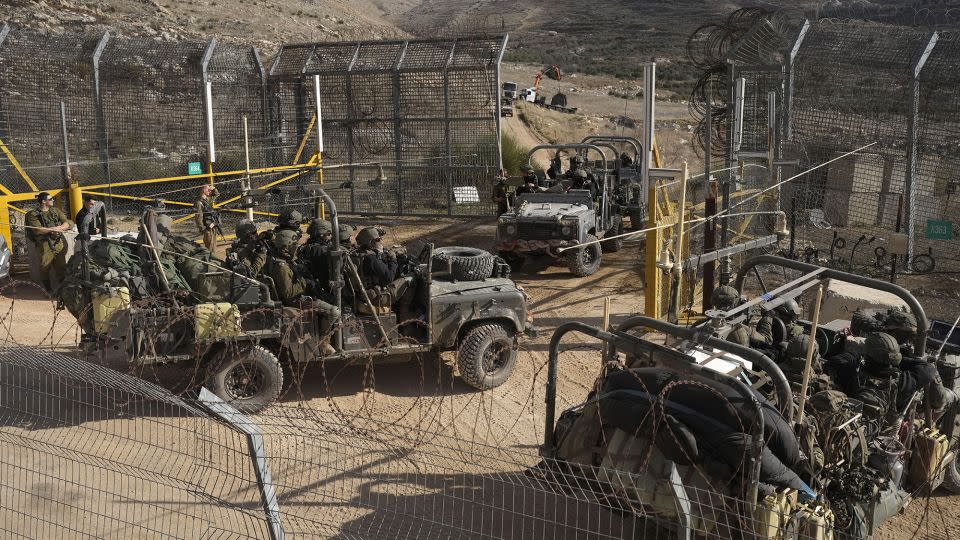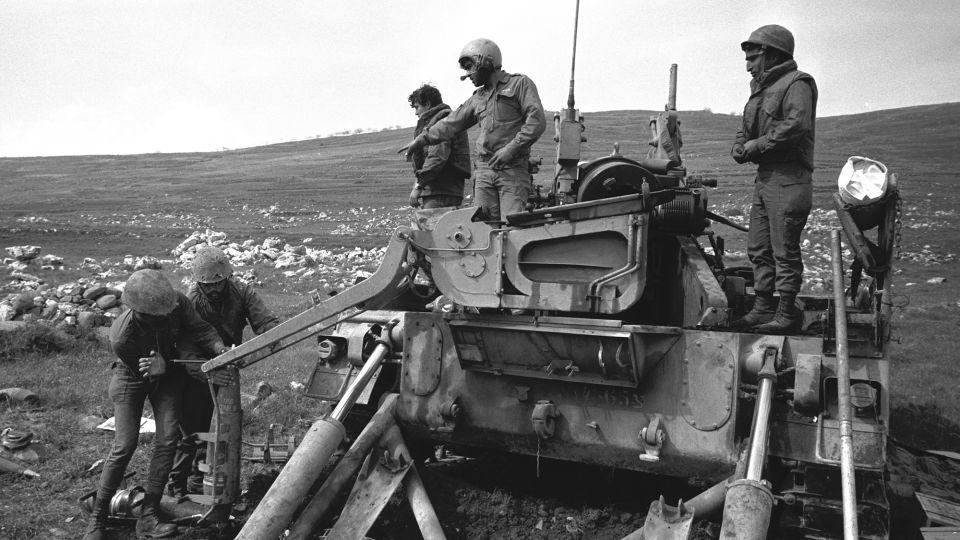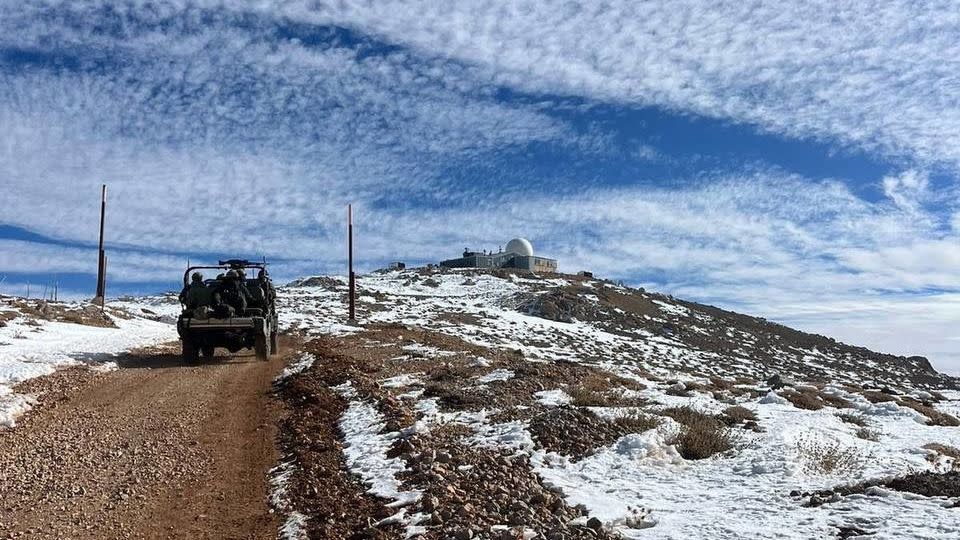Israel wasted no time after the fall of Bashar al-Assad in bombing all the Syrian military assets it wanted to keep out of the hands of the rebels – hitting nearly 500 targets, destroying the navy and, by its own account, 90% from known Syrian territory. -air missiles.
But it is Israel's capture of Syria's highest mountain, the peak of Mount Hermon, that could prove one of its most lasting prizes – even as officials have insisted the occupation is temporary.
“This is the highest place in the region, overlooking Lebanon, Syria and Israel,” said Efraim Inbar, director of the Jerusalem Institute for Strategy and Security (JISS). “It is strategically extremely important. There is no substitute for mountains.”

Israeli armored vehicles in the demilitarized buffer zone on the Golan Heights. – Matias Delacroix/AP
The peak of Mount Hermon is in Syria, in a buffer zone that separated Israeli and Syrian forces for 50 years, until last weekend, when Israeli forces took control. Until Sunday, the summit was demilitarized and guarded by UN peacekeepers – their highest permanent position in the world.
Israeli Defense Minister Israel Katz ordered the army on Friday to prepare for the harsh conditions of winter deployment. “Due to developments in Syria, it is of enormous security importance to maintain our control over the summit of Mount Hermon,” he said in a statement.
The Israeli Defense Forces (IDF) has advanced beyond the summit, as far as Bekaasem, about 25 kilometers (15.5 miles) from the Syrian capital, according to Voice of the Capital, a Syrian activist group. CNN could not independently confirm that claim. An Israeli military spokesman denied this week that troops were “advancing toward” Damascus.

Israeli artillery on Mount Hermon in 1974. – Alain Dejean/Sygma/Getty Images
Israel captured the Golan Heights, a strategic plateau in southwestern Syria bordering Mount Hermon, in the 1967 war and has occupied it ever since. Syria tried to retake the area in a surprise attack in 1973, but failed, and Israel annexed it in 1981. The occupation is illegal under international law, but the United States recognized Israel's claim to the Golan during the Trump administration.
Israel has owned some of the lower slopes of Mount Hermon for decades and even operates a ski resort there, but the peak remained in Syria proper.
“We have no intention of intervening in Syria's internal affairs,” Prime Minister Benjamin Netanyahu said in a video days after Israel bombed hundreds of Syrian targets and seized the demilitarized buffer zone. “But we certainly intend to do everything necessary to ensure our safety.”
The peak of Mount Hermon is a huge asset under Israel's control. At 2,814 meters high, it is higher than any point in Syria or Israel, and after only one peak in Lebanon.
“People sometimes say that land is not important in the age of rockets — it's just not true,” Inbar said.
In an academic article published in 2011, he wrote about the many benefits of Mount Hermon.
“It enables the use of electronic surveillance deep into Syrian territory, giving Israel early warning in the event of an impending attack,” he wrote. Advanced technological alternatives such as aerial surveillance were simply not comparable, he said. “Unlike a mountain installation, these cannot carry heavy equipment such as large antennas and can be shot down by anti-aircraft missiles.”

Israeli forces on Mount Hermon on Sunday. – Social media
The peak is just over 35 kilometers from Damascus, meaning that control of the Syrian foothills – now also in the hands of the IDF – put the Syrian capital within range of artillery guns.
Israel's prime minister has said his “hand has been extended” to the new government in Syria. But in the post-October 7 world, he and other national security heavyweights have made it clear they are not going to take any chances.
“It is especially a comfort to us,” retired Brigadier General Israel Ziv said of Israeli operations in Syria. “We learned what happened in other countries when you have a terrorist organization seizing military equipment.”
Netanyahu has also insisted that the occupation is temporary. “Israel will not allow jihadist groups to fill that vacuum and threaten Israeli communities in the Golan Heights with October 7-style attacks,” he said. His criterion for withdrawal, he said, was a Syrian force “committed to achieving the 1974 agreement and guaranteeing security at our border.”
It is unclear when this can be achieved.
Whether the army withdraws “is a political decision,” Inbar said. “The military would like to stay there.”
Mike Schwartz and Tim Lister contributed to this report.
For more CNN news and newsletters, create an account at CNN.com

